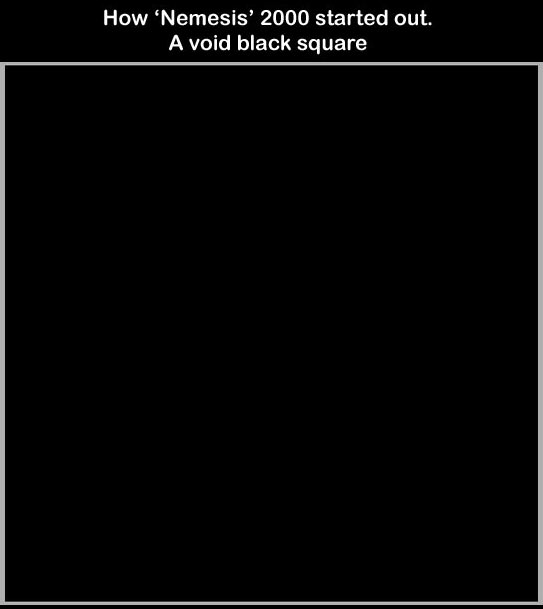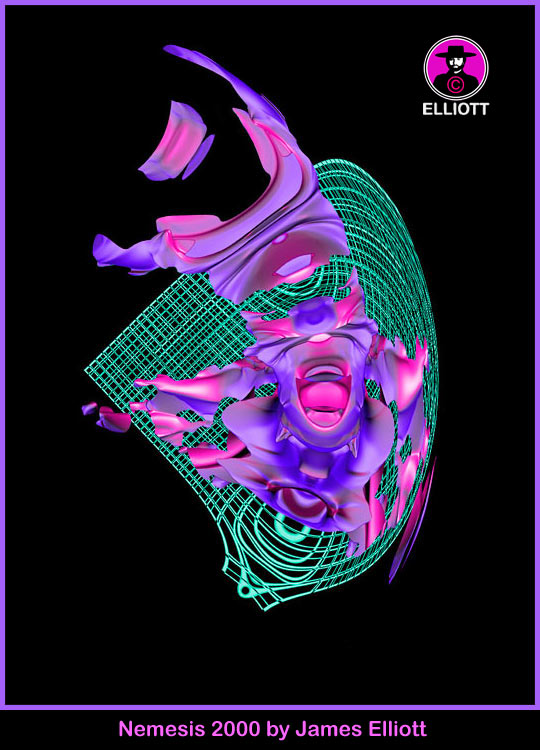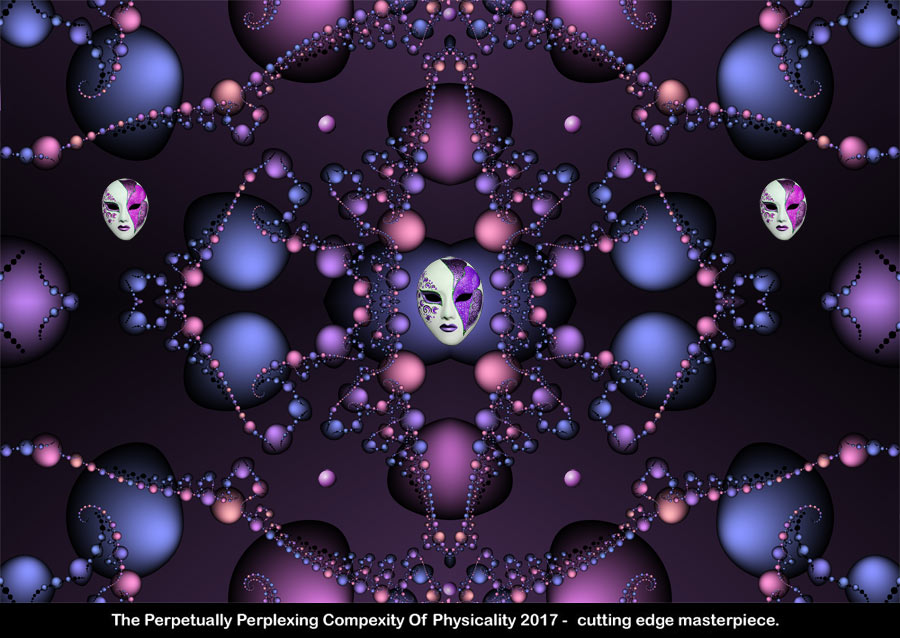 |
||||
|
by James Elliott Scientists want to know how the Cosmos was created and how we got here. Ambitious, considering we don't even understand each other. The fact that attempts are being made to comprehend our origins is unequivocal proof that the challenge is not fully understood. Should we attempt it? Considering the scale of the unfathomable riddle, even to the cleverest of minds, probably not. From a local perspective and asking questions closer to home, Darwin had hoped time would 'fill in the gaps' to his theories. It hasn't. It has enlarged them. The knowledge available to us now, which was not available to Darwin, has simply meant we have augmented our knowledge but diminished our understanding. The same observation could be made regarding the Cosmos, especially since the Hubble Telescope. Current estimates suggest there are around 2 trillion galaxies. I'm not sure who is counting them, but the lifetime of many people would be required to count up to such a number. The more we discover the less we comprehend. I first conceived this as an inverse law of learning in 1999.
And Darwin wasn't certain. He said he was inclined to look for a first cause. Me too. He also states he was not an atheist (on page 93 of his autobiography). Oh I have no doubt that humans can and do evolve and faster than one might think, but probably also to a far lesser extent than evolution theory suggests. I find it odd that Evolution and Big Bang are taught as if they were facts. Adam and Eve might have been OK for a human race that was stupid, violent and illiterate. But today we need something a little more plausible so we have the Big Bang Theory, which is not quite as daft. Although nearly so. Even if there was an anthropomorphic God that wanted to communicate with Mankind, it seems an odd idea to write books like the Bible, for a largely illiterate world, in an obscure language. Even in Shakespeare's day, the vast majority of people were illiterate. Roughly 70% of men were illiterate and 90% of women. So 80% on average were illiterate. And that was only 400 years ago. Now imagine the time when Jesus was supposed to have existed, 1600 years earlier. An age of stupid Barbarians. And we all know the miracles were added later. And 'Young Mary' did not translate well from the Hebrew to the Greek. It became 'Virgin Mary". A spectacular metamorphosis of meaning. Reminds me of when the then confirmed bachelor Hugh Hefner, was in Italy with his 'fiancé'. What?! He was in fact with his girlfriend, but in Italian said term is not well regarded, so it was changed to 'fiancé' out of politeness. Such is the fisherman's tale. Anyway, a micro evolution can be observed when one learns to play electric guitar. The pain from the steel strings is considerable, but within weeks the body adapts and creates thick layers of skin on one's fingertips. This is a small example of adapting to circumstances. And certain species on certain islands have been seen to evolve according to environment in quite swift order. Certainly decades. But the notion that a lobster is a common ancestor from 350 million years ago, is absolute piffle. And I don't care if the brain chemistry is similar. Last time I checked I did not have an exoskeleton. Nope, no carapace. The error here, is that people mistakenly think that EVERYTHING is possible over time. Nonsense. The same people glibly announce "Nothing is impossible" as if they are unaware of the dreadful, simplistic platitude that really is. Nothing impossible? Really? You can't have much of an imagination if you can't think of anything which is impossible. Let me help. It is impossible for you to change the electronic device you are reading this on, into a block of gold in the next 10 seconds. Time will prove me right. You could not do it over time either, you don't have that much time. Sure I can think of a scenario. Find a methodology that can change the number of protons in each atom to 79. Problem solved. Only thing is the chances of you doing that would be ten to the power of an infinite number. The numbers would be so huge, that for all practical purposes, the chances would be zero. This is a bit like the question of perfection and can it be reached? Yes it can.
Perfection is not a case of being 100%. It is about reaching the point at which imperfections are imperceptible. The concept of perfection is ironically, imperfect. The fact is, that 99.999% black is not a shade of grey, it is actually black. Why? Because you cannot distinguish one from the other. Humans cannot perceive the other one thousandth of a per cent blackness. They can't perceive even one per cent. So any such 100% specification is pointless. In fact the eye can be quite accommodating and will accept as black, anything down to 85% grey, depending on the circumstances. Perfection is the point at which no imperfection can be perceived, even by the critical, perfectionist observer. So perfection can and does exist. Evolution and the BIg Bang theory are both suboptimal ideas. They are both a paragon of imperfection. It seems to me that with evolution, it is far more likely that different species evolved in different ways, in different environments. Why should it be linear? Why should one thing evolve into another? And remember Darwin made almost no mention of human evolution. I have no orthodox religious beliefs, personally. I don't believe in anthropological Gods as currently perceived by the masses. I can however, observe the metaphysical superpowers, the ordering forces, everywhere I look. I can SEE this. It is not some random belief or a byproduct of religious inculcation or indoctrination. If you understand in the slightest, things at the atomic level, the complexity of physicality right down to living cells and the dumbfounding depths of the cosmos, you will know what I mean. It's hard not to see the miraculousness of it all. Scientists have obviously never done anything of a very creative nature, otherwise they wouldn't bother to search for origins. I often look at my latest artistic tour de force and think to myself, "That's amazing! How the hell did that get here?!" I know intellectually, of course, that I created it - I'm not that mad! But if you asked me how I did it, I have absolutely no idea. And when I say this, people think that I am just being secretive about my methodology. But I am not. No man alive could trace that back, not even me. My anthropological masterpiece, 'Nemesis' for example, I can tell you was created ex nihilo. Rather as cosmologists believe everything else was. I started out with nothing more than an empty black square. A void. One could argue philosophically that phenomenologically that is still something! Is space something or the absence of everything? Or is it paradoxically both?
All I did with my initial black square, was to add a white border so I could see it, but I did NOT introduce any elements from external sources into the picture. No additional resources or files were imported.They were all generated from the black square with white border. This is hard to comprehend unless you have seen it done. It's like drawing a single note out of the silence with a synthesiser and then going on to create a symphony, once you have the note. The speed at which this can occur is phenomenal, although an extraordinary input of work and experimentation is required before the spontaneous materialisation. It always takes time to summon order from the chaos. And should you not believe in spontaneous materialisation, as the vast majority of people do not, consider this. A four week old human foetus creates neurons at a rate of 250,000 a minute. Think about it. If one could observe this phenomenon casually, it would be like a miracle forming immediately before your eyes. A form of spontaneous materialisation. That is in excess of 4,000 brain cells created every second!
In the general scale of things, my art is just whispers on the wind. A spark before the Sun. The crucial point here is to note that whilst 'Nemesis' was indeed created ex nihilo, I would say in another sense, not quite. There was a creative power responsible for this metamorphosis from nothing to an extraordinary work of art. That creative power was me. Anyone who has observed physicality with more than a cursory glance, must have noticed the incomprehensible level of complexity, order and balance that exists in all things. Take a human cell. Most people regard it nonchalantly, but have you ever studied one? It has an architecture of staggering complexity, especially the nucleus. The human genome in the nucleus contains 3 billion base pairs of DNA inside the 23 pairs of chromosomes. So 6 billion bits of code in 46 chromosomes. Simply put these billions of pieces of code are the instruction set for a human being. And it is currently thought that we have around 30 trillion cells. That is 30,000,000,000,000 cells of said 6,000,000,000 part complexity. If you know all this, forgive me, but it seems to me, common knowledge which is far from common. The complexity of physicality is a prominent motif in my art.
And whatever happened to that fundamental law of science, cause and effect?! Evolution and the Big Bang Theory are just the best guesses so far and like the premises of religion, no-one can prove they AREN'T true, but that is a pointless observation. The burden of proof lies not with the skeptic, but rather those making the initial assertions. If you are going to tell me the moon is made of cheese, show me your evidence and proof. So with the BIg Bang theory riddle me this. When did you last see an explosion create anything? Explosions generally cause nothing but destruction. I am however aware, that creation and destruction can be part of the same process. One must sometimes destroy things to create something of greater worth. And chaos can be allowed to exist in the pursuit of higher order, but explosions are just the most powerful way to destroy. They would not really be consistent with the creation of the cosmos, never mind people. Even with the collapse and death of large stars and the consequential creation of supernovas, they are the last dying gasp of a star. They fade quickly. The fact that they can trigger the creation of new stars has very much to do with the fact that space contains a great deal of dust and gas and is rarely empty. And of course gravity plays a part. Stars do not explode into existence, they light up over a very protracted timescale, typically millions of years. They are created by a process of nuclear fusion, a finely tuned balancing act, nothing like an explosion. But you couldn't create a human being or anything else of complexity, via an explosion. That requires meticulous creativity, not destruction. Imagine you had a pile of one million plastic letters of the alphabet and you blew them all up. Could you imagine the result creating a coherent sequence of words to form the text for a book? I'm joking of course, think of the maths, but this is what we are being asked to believe with the bIg bang and evolution. Could said coherent narrative be created with a creative ordering force rather than a destructive force? Yes. Explosions are a paragon of chaos. You could blow the letters up repeatedly until hell freezes over and you would NEVER get that result. Explosions are the antithesis of creativity. As for evolution by natural selection, why should there be this thing called Nature? What is the nature of Nature? And why is it selective? And why does it want to evolve? This suggests again a metaphysical power or ordering force. An independent agency. But the salient point is that such astonishing order as one observes everywhere, cannot possibly be the result of anything as random as Darwin's theory of evolution or the bIg bang. Such arguments are pure sophistry. They may sound nice and be easily understood by the masses, but rarely do they hold water. Rather like the world being flat and the sun orbiting the Earth, it seemed like a good hypothesis at the time. Consider this. If you dropped bottle of Champagne from a tall building and it hit the road below and smashed, exploding and fizzing..... do you think that if you had never seen a bottle or Champagne before, that you could trace back the trajectories of each chard of glass to reconstruct it and then calculate where the object came from? Discover what it looked like before the fall? How about the fizzing bubbles? The foam. Could this be understood and retraced? And why would you want to? Now take the smashed Champagne bottle forward a millennium. The wind and rain and other circumstances conspire to wash away smaller parts, perhaps even all of it. Time spreads it far and wide. The weather would at the very least smooth down shapes, like pebbles which over time would become ground down and then become sand, probably blown away by the wind. The paper label would be first to go and has long since disintegrated and gone. Other things interact with it. Perhaps bits gets cleaned up or buried. Archaeologists are always digging. Pieces would definitely scatter far and wide. Now regress in time many millennia and imagine primitive man looking at a bottle of Champagne. It is incomprehensible. The point I am making is, what you are looking at now, isn't the thing. It's something else. And we don't know what it was. Neither can we fathom it. And with the time it takes light to get here, even from the closer parts of the Cosmos, the image is so inaccurate, it can be safely disregarded. If you set out for a very distant planet, it may disappear on the way, as the light rays arrive and update their veracity. I was a keen astronomer as a teenager and could name all the constellations, but I was always acutely aware that what I was looking at may or may not be there. And although all the light rays would progressively update the picture in their own good time. Not in ours. And by then in any case, there would be another truth in the distant reaches of the Cosmos. The Big Bang Theory is a foolish, simple theory and a primitive attempt to define our totally incomprehensible origins. It's actually rather funny. It's just the modern version of Adam & Eve and in time will be seen as such. Science has, after all, become a religion. Leaps of faith are to be expected. The Garden of Eden is just Christian Mythology. It would involve inter-familial relationships best not pondered. The Big Bang Theory is what I term 'conjectural quack science'. Science has fantastic uses, but not when it engages in flights of fantasy. Hawking says the Cosmos just exploded into existence. I don't buy it. The potential for certain physical attributes would need to pre-exist i.e. for ignition, fire, gravitational force and so on. And you would need space to explode into. Nothing cannot suddenly become something without a cause. The law of cause and effect is fundamental to science. So what was the cause for the big bang? Scientists like to tell people they know things and when they run out of knowledge, they just make stuff up. Repeat this babble often enough and it becomes a belief. I guess 'We don't know' gets a bit repetitive at times, but honesty is, as is often the case, the only way forward. The chances of Mankind figuring out our origins and indeed the hundreds of billions of galaxies, are considerably less than the chances of an ant figuring out the streets, parks and gardens of London. I wouldn't put your money on either. Or waste your time thinking about such things. JAMES ELLIOTT 24th Jun 2020 3000 words |
||||




